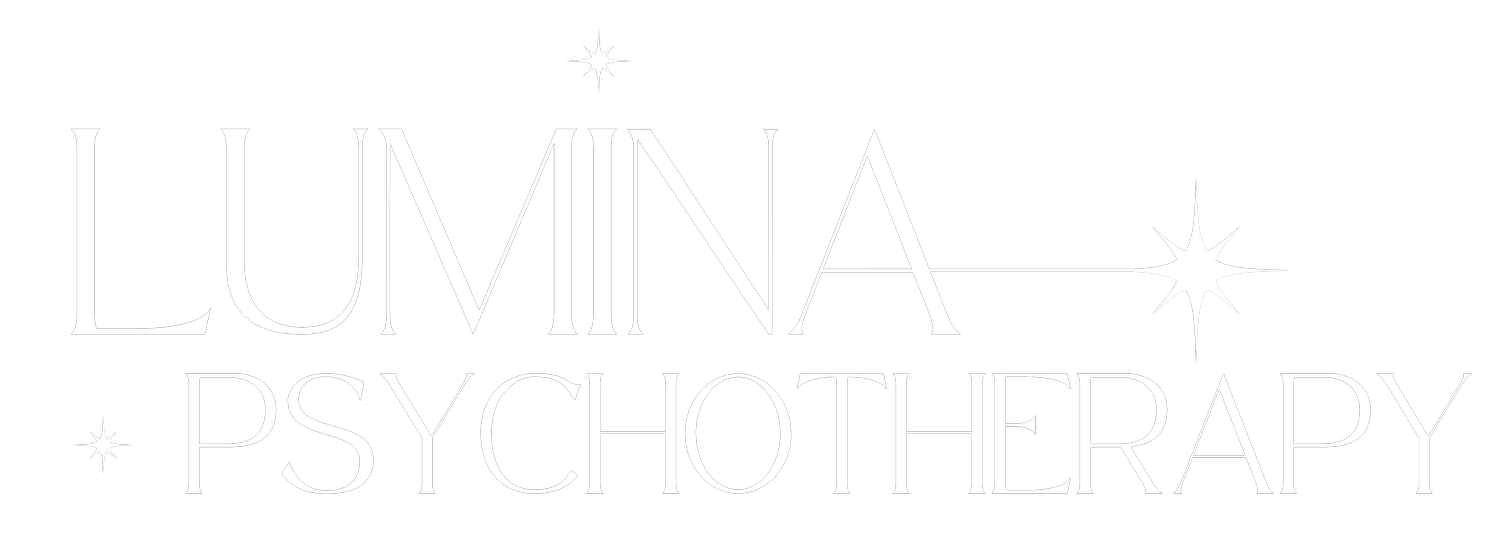
About Lumina Psychotherapy
Located in the heart of Wilmington, NC, Lumina Psychotherapy was born with the purpose to uplift our community with the transformative power of trauma-informed therapy.
Hi! I’m Emma Erickson.
I’m so glad you’re here.
Owner & Therapist
I earned a master’s degree in Clinical Mental Health Counseling from the University of North Carolina at Pembroke and a bachelor’s degree in Communication with a minor in Psychology from the University of North Carolina Wilmington. I’m a Licensed Clinical Mental Health Counselor and a Licensed Clinical Addiction Specialist Associate in the state of NC.
My background and education have equipped me to treat mental health issues of all kinds. I’m especially passionate about working with first-time therapy goers, complex trauma survivors, and individuals with ADHD. My work has connected me with folks from all walks of life, with a variety of different cultural and spiritual frameworks. I strive to ensure my care is not just culturally competent, but culturally celebratory.
Tools in my Treatment Tool Box
-
Eye Movement Desensitization and Reprocessing (EMDR)
EMDR is widely recognized as one of the most evidence-based treatments for trauma-related conditions. It’s a non-invasive approach that helps process distressing memories using bilateral stimulation, such as eye movements or vibrations. EMDR can provide relief from trauma and emotional distress by assisting the brain reprocess those memories in a healthier way.
-
Person-Centered Therapy
Person-Centered Therapy, also known as Rogerian therapy, is a client-centered approach that emphasizes empathy, unconditional positive regard, and genuineness from the therapist, creating a safe and supportive environment for clients to explore their feelings and experiences without judgment. The therapist works collaboratively with the client to facilitate self-discovery, personal growth, and the development of inner resources for healing and problem-solving.
-
Acceptance and Commitment Therapy (ACT)
ACT helps you to develop psychological flexibility by teaching skills to handle difficult thoughts and emotions more effectively, while also guiding you to clarify your values and take committed action toward what truly matters to you in life. It focuses on accepting what is out of your control and taking meaningful steps toward living a rich and fulfilling life aligned with your values.
-
Dialectical Behavioral Therapy (DBT)
DBT combines elements of cognitive-behavioral therapy with mindfulness practices, focusing on building skills for emotion regulation, distress tolerance, interpersonal effectiveness, and mindfulness to help individuals cope with intense emotions and improve relationships.
-
Feminist Therapy
Feminist Therapy is a therapeutic approach that acknowledges the impact of social, political, and cultural factors on personal experiences and mental health, while also empowering clients to challenge traditional gender roles and societal expectations. It emphasizes collaboration, empathy, and social justice, aiming to address power imbalances and promote equality within the therapeutic relationship.
-
Cognitive-Behavioral Therapy (CBT)
CBT is a goal-oriented therapy that focuses on identifying and changing negative thought patterns and behaviors that contribute to emotional distress. It teaches practical skills and strategies to help individuals manage symptoms, challenge unhelpful beliefs, and develop healthier ways of thinking and coping.
-
Motivational Interviewing (MI)
MI is a collaborative, goal-oriented communication style that aims to elicit and strengthen an individual's motivation for change. It involves empathetic listening, reflective questioning, and affirming statements to explore ambivalence and enhance readiness to make positive changes in behaviors.
-
Narrative Therapy
Narrative Therapy is a form of therapy that views people as the authors of their own stories and helps them to re-author their narratives in a way that promotes empowerment and resilience. It focuses on separating individuals from their problems, externalizing issues, and co-creating alternative narratives that highlight strengths, values, and preferred identities.
-
Solution-Focused Brief Therapy (SFBT)
SFBT is a strengths-based approach that focuses on identifying and amplifying clients' existing resources and solutions rather than dwelling on problems or past issues. It is future-oriented and goal-directed, with an emphasis on exploring what clients want to achieve and co-constructing practical steps to reach those goals in a relatively short period of time.

Penny
Resident telehealth emotional support dog
You can find Penny silently supporting clients in the background of telehealth sessions. As a shy girl, she loves to be admired from afar. Her strengths include active listening, upholding confidentiality, and being a good girl.


